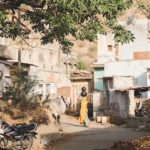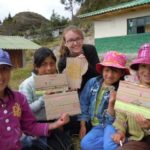The Truth About Working in International Development

In the Democratic Republic of the Congo, the GNI per capita is 420 USD. In Haiti, the per capita GDP is 846 USD per year. Six months ago, I worked with a local consultant who demanded 661.92 USD per day. When I tried negotiating lower because his salary history didn’t match, he insisted that I was sitting on piles of “his” money. In that same conversation, the consultant then accused me of making three times what he was demanding (which was not true!) I’ve been working in international development for the past seven years, and I think it’s time to dispel some of the most common misconceptions I’ve heard.
Misconception #1:
IDEV workers make obscene amounts of money
While senior-level management makes a fair amount (and even more in allowances and bonuses if they take overseas postings), the average IDEV home office worker is a young professional with 2-3 years of experience, a Masters’ degree, and is probably sharing an exorbitantly priced apartment in a Western capital city.
Their daily rate (even with a Masters’ degree) is between 140-200 USD per day, or between 41,600-52,000 USD per year before taxes. In reality, I was making about one-third what the previously mentioned consultant was demanding– not three times his rate.
Misconception #2:
We’re all a bunch of bleeding heart hippies, and have a savior complex
The development industry has turned some of my most idealistic, passionate friends (and to be honest, me included) into the bitterest of cynics. It’s also an entire profit-making industry of its own, with several companies actively participating in development contracts only to make a profit. It’s hard for a lot of us to maintain idealism in the work we do when the vast majority of it has been spent catering to middle-aged men who are demanding complementary upgrades to business class, complaining about the length of visa approvals, or who don’t understand how to read travel itineraries.
And it’s even harder for us to want to continue working in an industry where we are constantly accused of “sitting on piles of people’s money,” when in reality, we make a quarter of what they do.
Misconception #3
Everyone who works in international development is a spy
Unfortunately, there is some truth to this, thanks to the CIA’s attempts to infiltrate Afghanistan and Pakistan by pretending to be health workers. Even more unfortunate is that because of the intelligence communities’ attempts to work in more dangerous countries, they’ve actually endangered the lives of real international development workers. At this point, we wish they’d stop because it makes life so much more difficult for us.
Misconception #4:
We always travel first class
Because of US government restrictions, if we engage in project-related travel, all of the flights we take are the lowest-cost flights available. Unlike some US government officials, we actually have to follow those rules. I’ve traveled 40% of the year in economy, and while travel might seem glamorous to some, it starts wearing on you the third time you travel for 30+ hours in quick succession.
Misconception #5:
Every Developing Country is a War-torn Conflict Zone or a Place Where People Live in Mud Huts
This is an incredibly racist misconception, and it’s one I have to deal with nearly every time I talk to people about what I do. Is income disparity a problem? Yes. Is access to resources (food, finance, education, health, and clean water) a problem? Yes. But most of the development work done today is vastly different to what the vast majority of people think.
Misconception #6:
We’re All Voluntourists and Know Nothing
This seems to come up more frequently in conversation with the average holidaymaker than anyone else, even when I’m traveling. My coworkers and I have been told that we don’t understand how the real world works, that we don’t understand the mindset of those people over there, and everything in between.
I’ll be frank— I don’t have time for this type of conversation, and it’s one my colleagues and I have fielded nearly every time someone has asked us about what we do. I’ve spent seven years working in the Middle East/North Africa, have two relevant degrees, speak Arabic fluently, and speak Kurdish and Farsi conversationally. Being lectured about how I know nothing from someone who gets their average news from a screaming pundit gets exhausting quickly.
I stay in this line of work because on some days and some trips I’m persuaded 100% that the work you are doing is good, meaningful work.
Photo for The Truth About Working in International Development by Unsplash.








